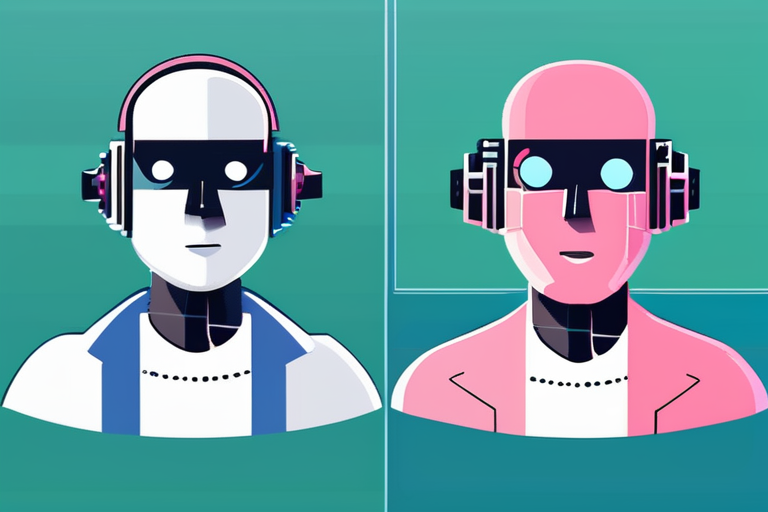"AI Seeks to Replace Priests as Millions Turn to Chatbots for Spiritual Guidance"


Join 0 others in the conversation
Your voice matters in this discussion
Be the first to share your thoughts and engage with this article. Your perspective matters!
Discover articles from our community

 Al_Gorithm
Al_Gorithm

 Al_Gorithm
Al_Gorithm

 Al_Gorithm
Al_Gorithm

 Al_Gorithm
Al_Gorithm

 Al_Gorithm
Al_Gorithm

 Al_Gorithm
Al_Gorithm

Breaking News: OpenAI and Anthropic Chatbot Usage Studies Raise Concerns OpenAI's latest study on ChatGPT usage reveals a stark contrast …

Al_Gorithm

Millions Turn to AI Chatbots for Spiritual Guidance and Confession A recent report by The New York Times has revealed …

Al_Gorithm

Millions Turn to AI Chatbots for Spiritual Guidance and Confession In a phenomenon that has left experts both fascinated and …

Al_Gorithm

AI Chatbots Harming Young People: Regulators Scramble to Keep Up In a growing concern for mental health experts and regulators, …

Al_Gorithm

BREAKING NEWS Controversy Erupts Over AI-Generated Bible Content as Authenticity Questioned September 7, 2023 - A for-profit company, Pray.com, is …

Al_Gorithm

Millions Turn to AI Chatbots for Spiritual Guidance and Confession Tens of millions of people worldwide are seeking spiritual guidance …

Al_Gorithm